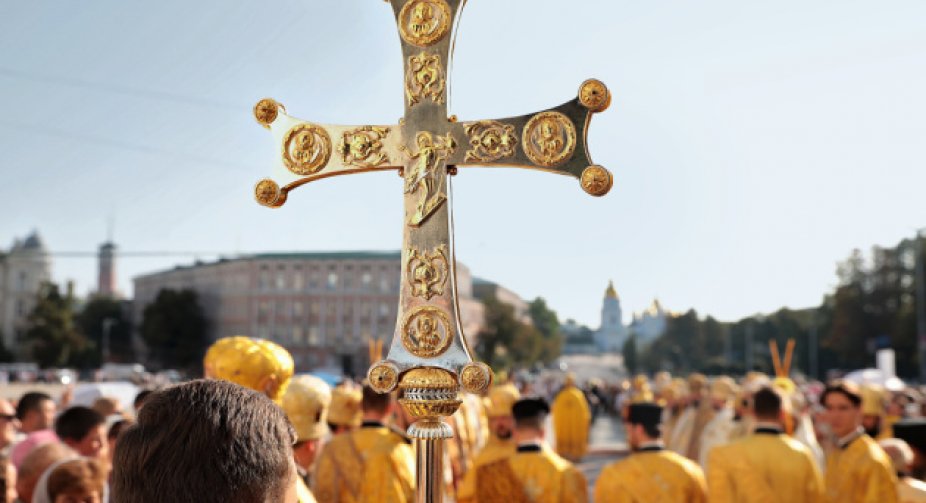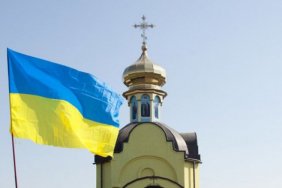More than half of Ukrainians began to associate themselves with the Orthodox Church of Ukraine (PCU), according to the results of the study "Dynamics of religious self-identification of the population of Ukraine", conducted July 6-20 by the Kyiv International Institute of Sociology (KIIS).
As noted in the results of the study, if in June 2020 34% of respondents associated themselves with the Orthodox Church of Ukraine, in June 2021 - 42%, in July 2022 the figure reached 54%.
Whereas before the full-scale invasion of Russia this proportion increased at the expense of the Orthodox without specifying the church (22% in 2020, 12% in 2021 and 14% in 2022), over the past year - at the expense of those who associate themselves with the Ukrainian Orthodox Church (Moscow Patriarchate) - in 2020 there were 15%, in 2021 - 18%, in 2022 - only 4%.
The proportion of Greek Catholics is almost unchanged during this time (8% in 2020, 9% in 2021, 8% in 2022), as well as the share of Roman Catholics, Protestants and other Christian churches (1-2% in each survey). The percentage of atheists increased slightly (8% in 2020, 7% in 2021, 10% in 2022).
Fewer than 1% of those surveyed said they practiced Islam or Judaism in all cases.
In 2022 more people in all regions identify themselves with Orthodoxy, as well as with the PCU (from 59% in the center to 42% in the east of the country). 3-6% identify themselves with the UOC-MP, depending on the region (in the east and south - 5-6%). At the same time, from west to east, the share of those who consider themselves Orthodox, but do not affiliate with any of the patriarchates, grows from 6% to 26%. Also from west to east the proportion of atheists grows from 4% to 17%.
Among all linguistic-ethnic categories, most respondents identify themselves with the PCU. Among Russian-speaking ethnic Russians this predominance is the lowest, but 36% of them identify themselves with the PCU and 13% with the UOC-MP. Among Ukrainian-speaking Ukrainians, 58% and 3%, respectively, support the Orthodox Church and the UOC-MP. Most atheists are among Russian-speaking ethnic Ukrainians (17%).
In terms of age the most atheists are among young people under 30 years old (22%), the least among the category of 60-69 years old (5%). Supporters of the PCU are least in the first category (43%), most in the latter (64%).
Young people (10%) correlate most with Greek-Catholicism, while people aged 50-59 years old (7% and 4% respectively) correlate most with UOC-MP and Protestantism. People aged 40-49 years (17%) more often describe themselves as Orthodox without a confession, they often find it difficult to answer (5%).
In general 72% of Ukrainians consider themselves Orthodox (least of all in the West of the country - 59%), 8% are Greek Catholics (in the West 26%, in other macro-regions about 1%), 10% are atheists.
The survey was conducted through computer-assisted telephone interviews (CATI) among 2,000 respondents in all regions surveyed before February 24. Under normal circumstances, the statistical error of sampling (with a probability of 0.95 and taking into account the design effect of 1.1) did not exceed 2.4% for indicators close to 50% and 1.1% for indicators close to 5%. Under conditions of war, in addition to this formal error, a certain systematic deviation is added, but the results still maintain high representativeness and allow us to analyze the public sentiments of the population reliably enough, the CMIS noted.


